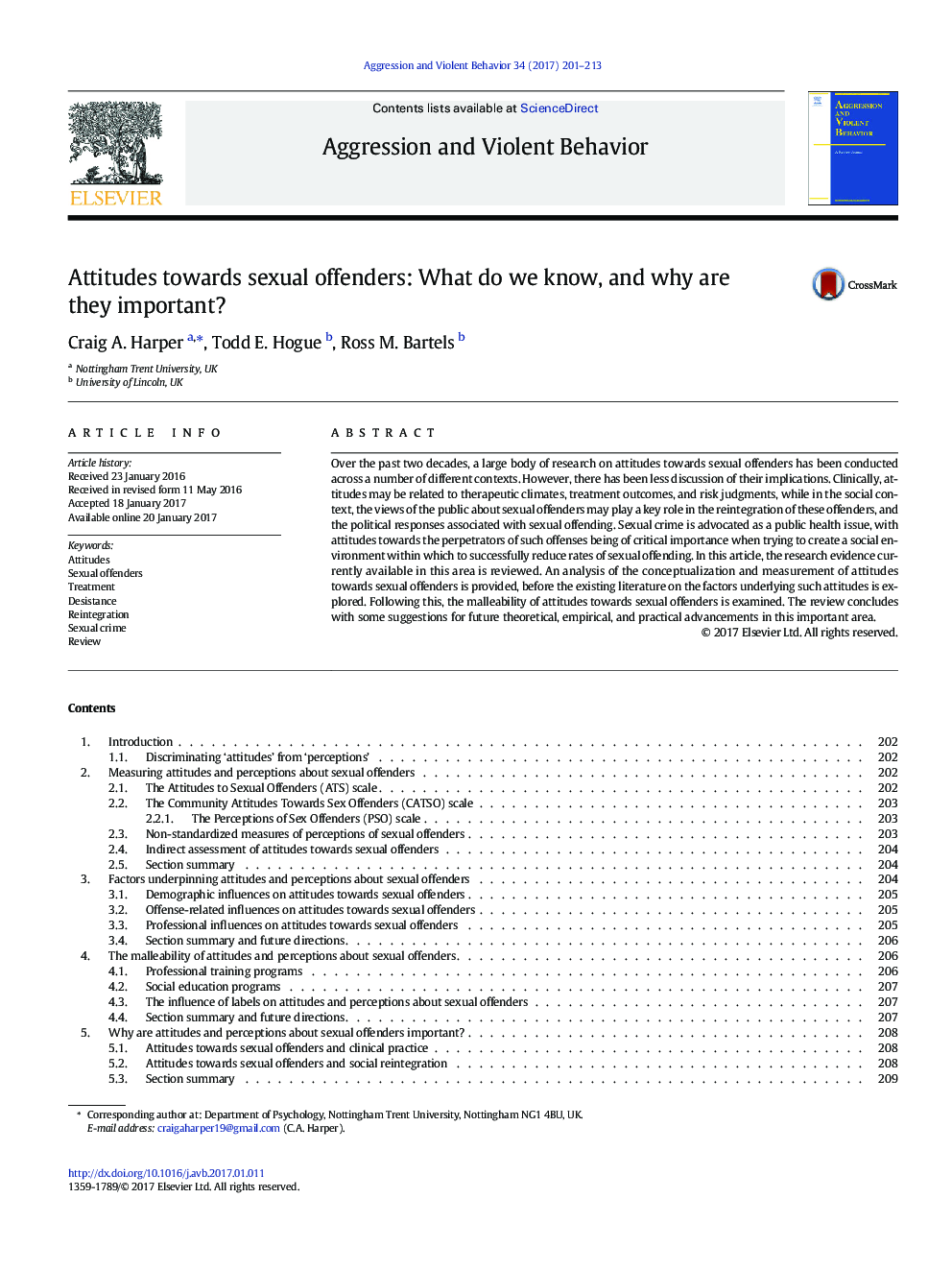| Article ID | Journal | Published Year | Pages | File Type |
|---|---|---|---|---|
| 4760111 | Aggression and Violent Behavior | 2017 | 13 Pages |
â¢There is inconsistency in the measurement of attitudes towards sexual offenders.â¢Exposure to sexual offenders is the best-supported factor for influencing attitudes.â¢Attitudes towards sexual offenders are malleable in the short-term, though evidence for long-term effects are lacking.â¢Attitudes towards sexual offenders are important in clinical and societal contexts.â¢The prevention of sexual crime should be considered a public health issue.
Over the past two decades, a large body of research on attitudes towards sexual offenders has been conducted across a number of different contexts. However, there has been less discussion of their implications. Clinically, attitudes may be related to therapeutic climates, treatment outcomes, and risk judgments, while in the social context, the views of the public about sexual offenders may play a key role in the reintegration of these offenders, and the political responses associated with sexual offending. Sexual crime is advocated as a public health issue, with attitudes towards the perpetrators of such offenses being of critical importance when trying to create a social environment within which to successfully reduce rates of sexual offending. In this article, the research evidence currently available in this area is reviewed. An analysis of the conceptualization and measurement of attitudes towards sexual offenders is provided, before the existing literature on the factors underlying such attitudes is explored. Following this, the malleability of attitudes towards sexual offenders is examined. The review concludes with some suggestions for future theoretical, empirical, and practical advancements in this important area.
